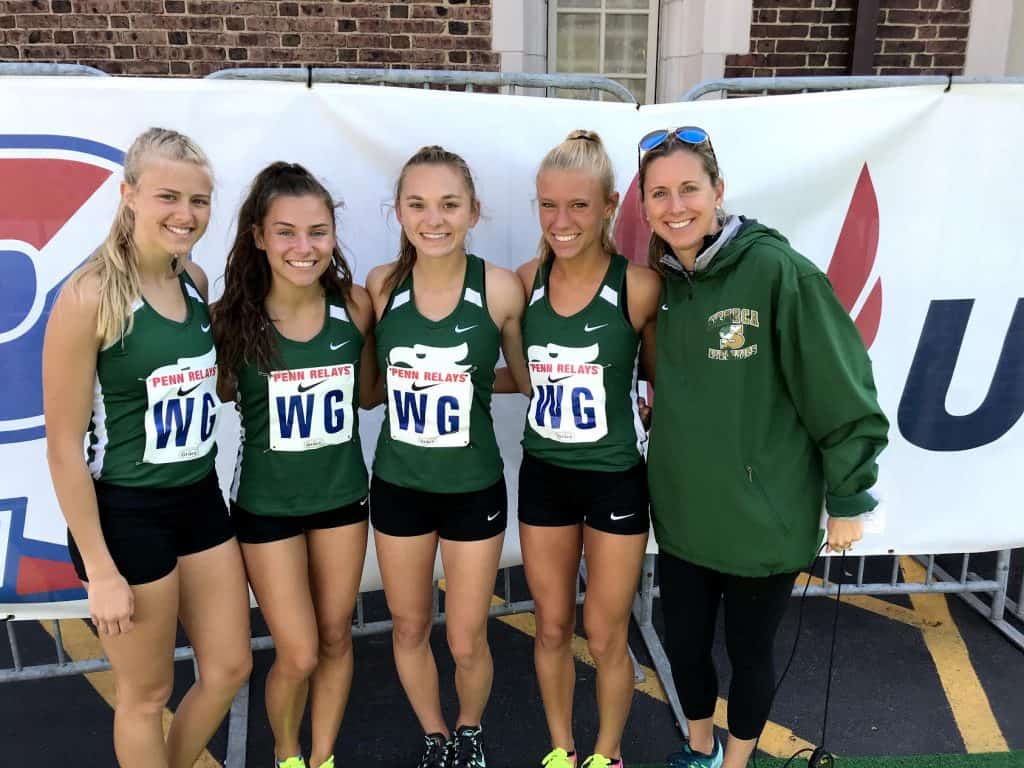

Running down the stairs from the 27th floor of her office after the first plane hit the World Trade Center on 9/11, Karen O’Neil was a subway stop away from Ground Zero.
Like many others, she didn’t know at first what was going on, but she was certain of one thing. “It was one of those life-defining moments where it was, ‘If I die today, will I be satisfied with what I was doing with my life?’”
O’Neil spent a year working in finance at the now-bankrupt Lehman Brothers at Brookfield Place, formerly 3 World Financial Center. She earned her degree in economics and politics at Princeton University in 2000, and wanted to get back to coaching track and teaching history, a subject she dabbled in during high school and college.
“I wanted to teach social studies and I tried to figure it out through a year of what courses I needed,” O’Neil shared. “I was taking classes at local colleges, piecemealing everything together, and I had started coaching at Shawnee High School.”
A Shawnee graduate, O’Neil entered a one-year, post-baccalaureate program at Stockton University that resulted in a teaching degree, launching her from substitute teacher and volunteer coach to social studies teacher and full-time coach of track and cross country.
“Sept. 11 really, drove it home on why learning history is so important,” she noted. “There’s so much about it that has to do with history.”
Up until last school year, O’Neil had dedicated 15 years to Seneca High School’s varsity winter track and nine to the cross-country teams, and taught history classes along the way. Her dedication to track has resulted in her teams’ regional and state recognitions along with championship titles.
This school year put her in yet another role: assistant principal.
“The thing that I had to work on the most was trying to transition my leadership style as a teacher and a coach into my style as an administrator,” O’Neil explained. “That’s one of the things I felt strongly about in the classroom and as a coach, is letting the kids be a part of developing the vision of where we’re going.”
One year into her role, O’Neil adores its discipline aspect — not necessarily handing out suspensions, but interacting with students and helping them make sound decisions.
She has learned about her colleagues on deeper levels and continued to expand her knowledge on the efforts it takes to educate a student before they enter Seneca. Many times, O’Neil and her colleagues had to break down barriers students faced in obtaining an education.
“It’s important for students to realize that they’re continuing to live through history, especially now,” she explained, referring to the COVID-19 pandemic. “I’m no longer teaching history, but I think about what we could be teaching about what we’re living through right now.”
During the pause in normal instruction, O’Neil earned another title as athletic director, effective Aug. 1. She first had to overcome a collarbone injury that required four to six weeks of rest.
“I understand what they’re going through as student athletes and I’m excited to be out every afternoon, walking the fields, watching the kids play and get a sense of each team’s culture [next year],” O’Neil said. “I know the kids, but I’m going to be seeing it in a different light and in a different role.”
As a former captain and coach, the newly-minted athletic director kept in mind how important sports had been since she was 5, and the experiences it provided her throughout her educational career.
“Athletics, to me, is such a big part of education for students,” O’Neil noted. “Whether it is athletics or extracurricular activities, that’s what truly makes an education, along with the academics component.
“I’m really excited to bring that passion for athletics and activities to the new position of athletic director.”









